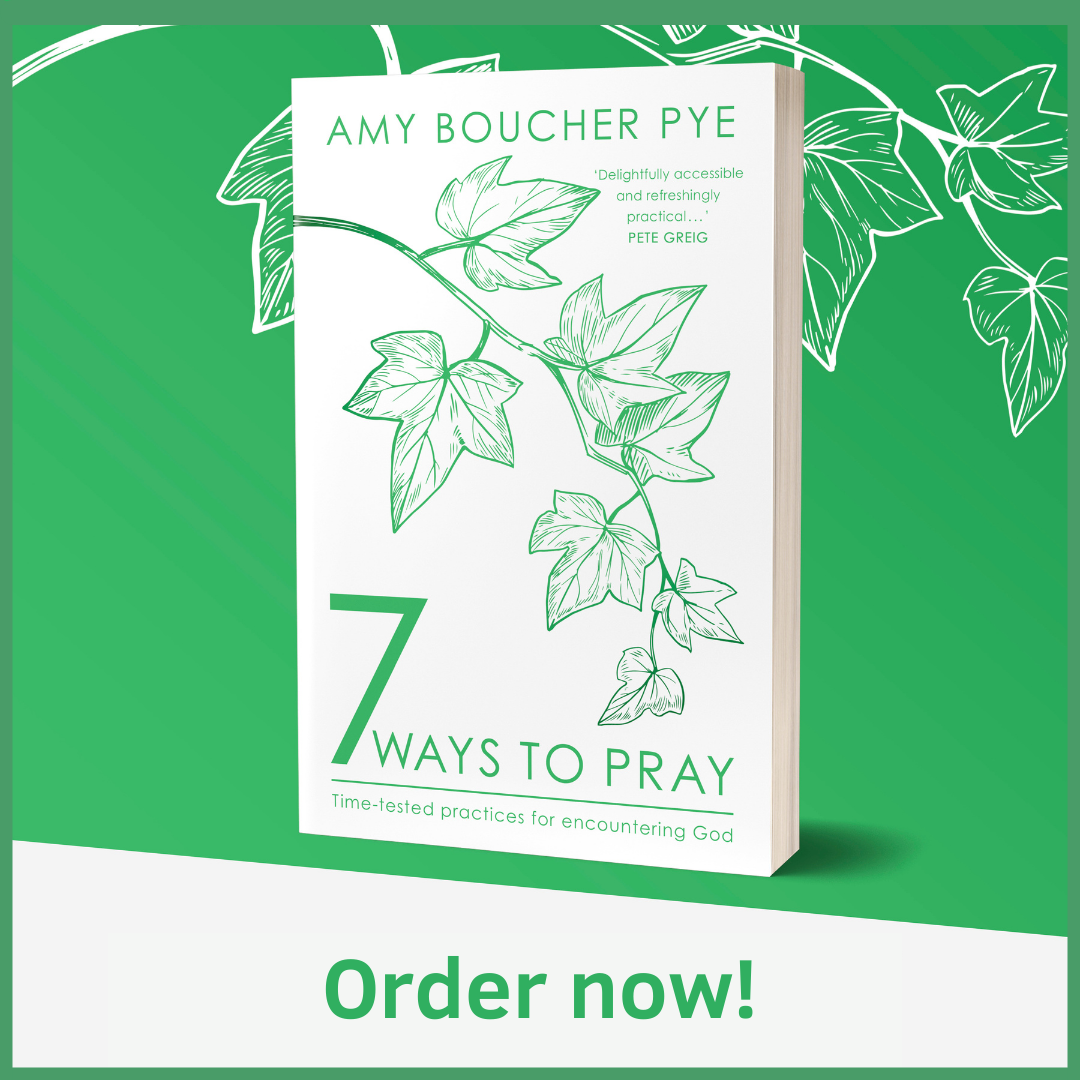“Praying When the Going Gets Tough” (part 2) by Georgie Tennant: 7 Ways to Pray blog series

How can we continue to trust God when the worst has happened? Georgie takes us through some of the tough questions she faced after her sister died. I love how she didn’t shy away from bringing all of her questions to God, even when she felt bitterly disappointed in him. If you haven’t read the first installment, you might want to do so now.

Last week, I wrote about prayer during my sister’s six-month journey with terminal cancer. In the early hours of the morning of 24th September 2017, I sat with her and my brother-in-law, each of us holding one of her hands, as she finally slipped from this life. It was the hardest thing I have ever done.
In the early flurry of practical arrangements, I hardly had time to stop and think. I remember, though, a late-night conversation with my husband, where I poured out my fear that I would never be the same again – that I would never be able to trust God with anything, ever, because it felt so much that He hadn’t come through for us when He had been our only hope.
This has been a long journey of prayer and counselling to get back on my feet, emotionally and spiritually. Mine was the kind of story I didn’t want to read, when I was walking the path with my sister, hoping and praying for a healing that didn’t come.
Yet here I was. I know my story has helped others around me cling to faith when all feels dark, so I hope, by sharing some of my revelations on the path to rebuilding my faith and prayer life, it will help those reading this blog too, in similar situations.
Three key things that I learned:
1. Acknowledge hard emotions and crushing disappointments
If we leave our disappointments and frustrations about unanswered prayer simmering and bubbling without facing them, they can eat away at us, causing hurt and bitterness and eventually explosions in our faith, which can cause us to walk away from God.
God is big enough to hear our ragings and our disappointments and it is far better to take them to Him and allow Him to breathe fresh hope into our souls than try to carry on, pretending everything is fine.
The book of Psalms is like a manual for honestly expressing our emotions. David cried out to God over and over again when he was feeling bitter, confused, angry, in despair, abandoned. In doing so, he was able to focus himself afresh on God and allow God to bring him to a place where he put himself back in God’s hands again.
2. Try to accept that there is a bigger picture and a different perspective that we cannot even begin to imagine – both now and in eternity
This is really, really hard. We look at our circumstances and often can’t see an inkling of sense as to why God wouldn’t change them, heal us, rescue us, deliver us. We may never find an answer this side of heaven as to why some people’s prayers are dramatically answered and others are not.
It helped me to look at the response of Jesus himself to his own suffering, in the Garden of Gethsemane, and understand that even he prayed for deliverance from his circumstances. Even he suffered and grieved that things couldn’t be different and even he could not have his immediate prayer answered, if his mission on earth was to be fulfilled.
Jesus’ prayer at that time helped me, as I wrestled with unanswered prayer and disappointment: “Abba, Father,” he cried out, “everything is possible for you. Please take this cup of suffering away from me. Yet I want your will to be done, not mine.” (Mark 14v36). What a hard, hard thing to pray. And, for us, what a lot of soul-wrenching wrestling to get to that point. But it was reassuring to know that Jesus felt what I was feeling, that he is a suffering saviour and that he understood me and could carry me through this.
3. Believe that our prayers not being answered as we long for doesn’t indicate the level of God’s love for us.
If the devil can undermine our trust in the absolute truths that God is good and He loves us, he’s got us on the run. If we can hold on to them, even by our fingernails, we’re on much more solid ground. God has already proven His love for us by everything he has already done for us. Whether our prayers appear to be answered or not doesn’t change that fundamental truth.
Here are a few things that have helped me to get back on the prayer ‘horse’ after disappointment:
1. Praise and worship and get back into God’s presence – even if you’re crying through most of it – which I did in the very early days. God’s presence alone is healing and faith-building.
2. Thankfulness – be grateful for the small things. It really helps to re-gain balance and re-connect with God, recognising all the good gifts you still have, despite particular prayers going unanswered.
3. Ask the hard questions. Find as many theories and ‘answers’ as you can. Discuss, read others’ writing about it, watch video clips – anything that will help you to process your disappointment and come to terms with your loss. But accept that you can never have a water-tight theology of unanswered prayer.
4. Keep believing in the power of prayer. Pray for your prayer life to grow and be healed. Just start praying for things again. “Lord, I believe, help me in my unbelief.”
5. Just do it and ask for God’s help with what to pray and how. Have a go, even with all sorts of fears and doubts rising up.
The Rend Collective Song “Weep with Me,” says, “What’s true in the light is still true in the dark; you’re good and you’re kind and you care for this heart.” I think this sums up perfectly the experience of prayer after disappointment.
If you are struggling with disappointment from prayers unanswered, I pray today that you will know the courage to face and wrestle the difficult, painful questions, and, in doing so, find His goodness, His kindness and His peace.

Georgie Tennant is a secondary school English teacher in a Norfolk Comprehensive. She is married, with two sons, aged 13 and 11, who keep her exceptionally busy. She writes for the ACW Christian Writer magazine occasionally, and is a contributor to the ACW-Published New Life: Reflections for Lent, and Merry Christmas, Everyone, and, more recently, has written 8 books in a phonics series, published by BookLife. She writes the ‘Thought for the Week’ for the local newspaper from time to time and also muses about life and loss on her blog. The full sermon that inspired these blog posts can be found here, starting at around the 12-minute mark.
Order 7 Ways to Pray here for more ways to encounter God, including lots of resources for small groups.








 Hello!
Hello!
This is wonderful wisdom. True wisdom of experience. Thank you. As a home-group we have been looking at Pete Greig’s series on ‘God On Mute’. He also deals well with how Jesus completely identifies with our suffering and pain in Gethsemane and the cross and how He does not promise to airlift us out of suffering, but does promise to dive in there with us. God’s ways are not our ways. A pastor friend always says, God always answers, but sometimes the answer is ‘wait’, or ‘No’.
Thank you so much for sharing your own heart and vulnerability through your experience of deep suffering.